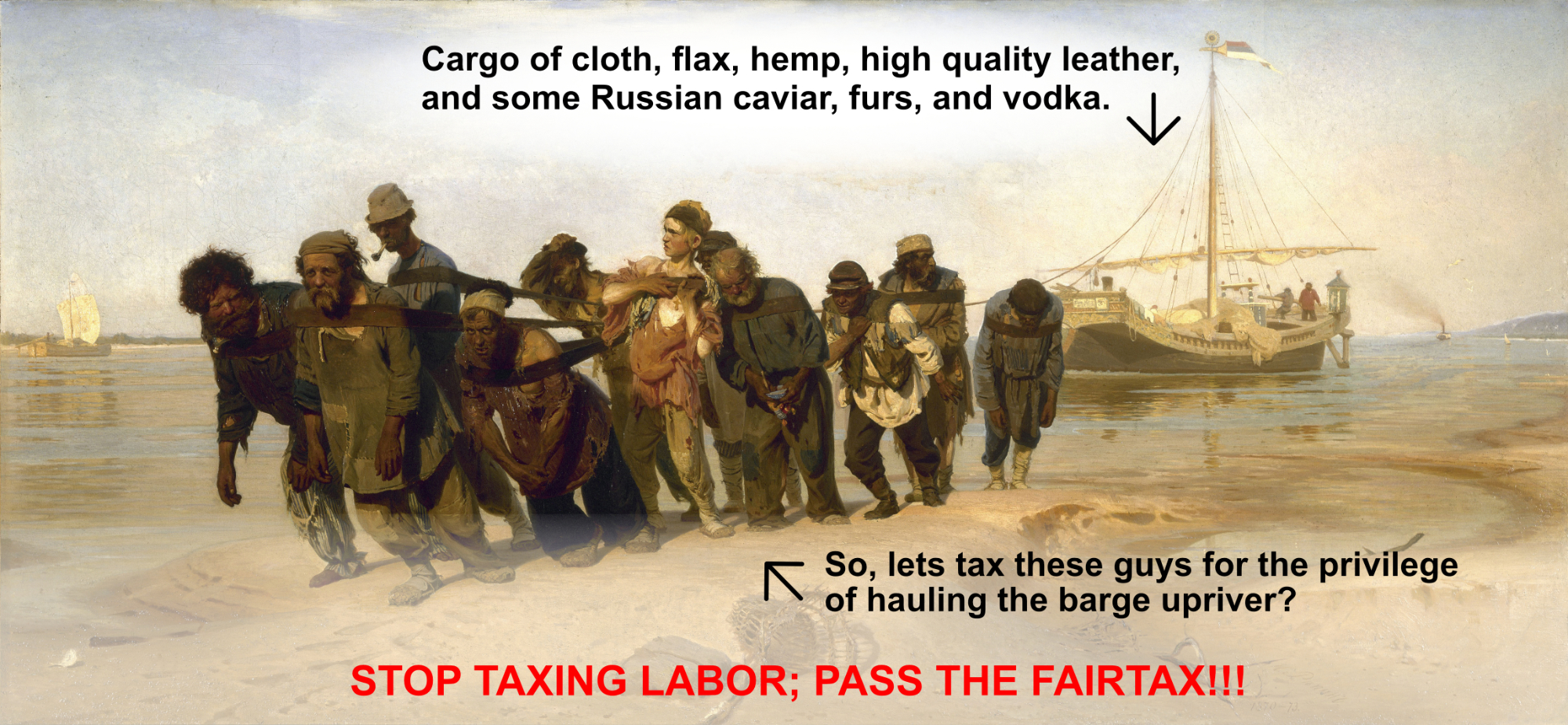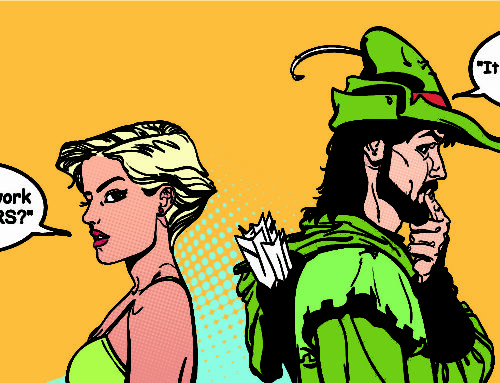Across centuries and nations, laborers or “Labor” has helped bring goods and services to market, in the broadest sense of the term. The lowest skilled of these have always commanded the lowest compensation.
Among these were the Russian Burlakis or “boat haulers.” (Like the ones shown in this famous painting by Ilya Repin) Doing a job relegated to animals in more developed countries of the time, they literally brought goods to market by pulling cargo-loaded vessels up-river destined for consumers in the big cities.
Being of the lower classes, they were not likely to be consumers of this cargo.
Would it have been right to tax them to haul this cargo, to tax their labor; their work, to tax their very “life force?” Wouldn’t it have been more progressive to get the tax from the customers when they bought the merchandise when it was sold at the market? The amount of tax paid would be directly proportional to their disposable income. With almost no bureaucracy, oversite or government regulation, the system would collect progressively.
And since the Burlakis had only enough money to spend on meager food and shelter (and apparently some tobacco) wouldn’t it be fairer still if that small amount of tax had been offset for the truly poor? But why just for the poor? After all, a portion every citizen’s money goes toward some, minimal amount of food and shelter. Then there would be no need for some government agency to decide who is truly destitute and who is not.





Leave A Comment